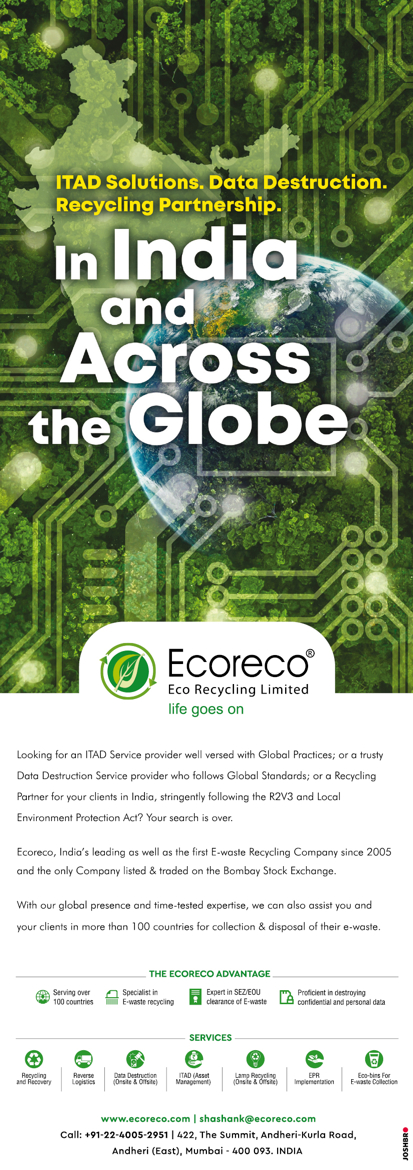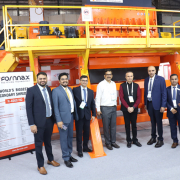Meeting Targets under EPR for E-Waste Recycling: An Evidence-Linked Approach
In today’s fast-paced digital age, electronic devices have revolutionized our lives, making them more convenient and efficient. However, this digital evolution comes with a shadow: the exponential rise of electronic waste, or e-waste. As countries grapple with the environmental and health hazards of e-waste, Extended Producer Responsibility (EPR) has become a global imperative. In this article, we delve into the significance of auditable targets in the context of EPR and how they drive sustainability. Our focus centers on India’s pioneering e-waste recycling company, publicly listed on the Bombay Stock Exchange and acknowledged by the Prime Minister of India.
E-waste in a Nutshell
E-waste encompasses discarded electronic devices, spanning from smartphones and laptops to refrigerators and industrial machinery. The global volume of e-waste generated is staggering and continues to grow. The improper disposal of e-waste can lead to toxic emissions, soil contamination, and the release of hazardous substances, posing significant environmental and health risks.
The Emergence of Extended Producer Responsibility (EPR)
EPR is a policy approach that holds producers accountable for their products’ entire lifecycle, including responsible disposal and recycling. In the realm of e-waste, electronic device manufacturers and importers must assume responsibility for properly managing their products once they reach the end of their useful life.
The Significance of Auditable Targets
Auditable targets are the linchpin of EPR programs, serving as quantifiable objectives that producers must meet to demonstrate their compliance with e-waste management regulations. Auditable targets are pivotal for several reasons:
- Accountability: Auditable targets delineate clear responsibilities for producers, ensuring they are answerable for managing the e-waste generated by their products.
- Environmental Impact: Setting targets reduces the environmental footprint of e-waste by fostering responsible recycling, resource recovery, and the prevention of hazardous substances from polluting the environment.
- Resource Conservation: By specifying targets for recycling and recovery, auditable targets promote the sustainable utilization of valuable resources inherent in electronic devices, such as metals, plastics, and rare minerals.
India’s EPR Pioneers
India has been at the forefront of EPR initiatives, exemplified by its first e-waste recycling company, Eco Recycling Ltd. This company is publicly listed on the Bombay Stock Exchange and has received accolades from none other than the Prime Minister of India.
Eco Recycling Ltd: Leading the Way
Eco Recycling Ltd has set a remarkable precedent by aligning with India’s evolving EPR regulations and wholeheartedly embracing auditable targets. The company’s unwavering commitment to environmental stewardship and sustainability makes it an exemplary model of responsible e-waste management.
Evidence Linked & Auditable Collection in Action
Auditable targets under EPR encompass various crucial aspects:
- Collection Targets: Producers are mandated to collect a specified percentage of the e-waste generated by their products. That incentivizes the development of efficient collection networks and infrastructure.
- Recycling and Recovery Targets: The e-waste collected must undergo recycling, with valuable materials recovered. That promotes resource circularity and sustainable practices.
- Consumer Awareness: Producers are obligated to invest in consumer awareness and education programs to ensure end-users comprehend the importance of responsible e-waste disposal.
- Record-Keeping: Meticulous record-keeping is imperative to showcase compliance with auditable targets. Thorough documentation of e-waste volumes, recycling processes, and regulatory adherence is essential.
The Eco Recycling Ltd Success Story
Eco Recycling Ltd not only embraces auditable targets but consistently surpasses them. The company’s unrelenting dedication to environmental protection, ethical recycling practices, and technological innovation has propelled it to the forefront of the e-waste recycling industry.
Prime Minister Narendra Modi’s Appreciation
The recognition of Eco Recycling Ltd by the Prime Minister of India underscores its commitment to sustainable e-waste management and its pivotal role in realizing India’s vision of a cleaner, greener nation.
In Conclusion:
EPR and auditable targets are not mere buzzwords; they are the cornerstones of responsible e-waste management in our increasingly digital world. The narrative of Eco Recycling Ltd, India’s pioneering e-waste recycling company, publicly listed on the Bombay Stock Exchange and esteemed by Prime Minister Modi, underscores the immense potential for businesses to champion sustainability. As the world grapples with e-waste challenges, Eco Recycling Ltd serves as a shining example of how auditable targets, when embraced with dedication and innovation, can lead to a brighter, more sustainable future. Through evidence-based target attainment, we pave the way for a circular economy where electronic devices enrich our lives while preserving the environment for generations to come.
B.K. Soni, Chairman & Managing Director, Eco Recycling Ltd., Email: bksoni@ecoreco.com, ecoreco.com
(Published in GLOBAL RECYCLING Magazine 3/2023, Page 18 -Advertorial-, Photo: PDU / fotolia.com)











